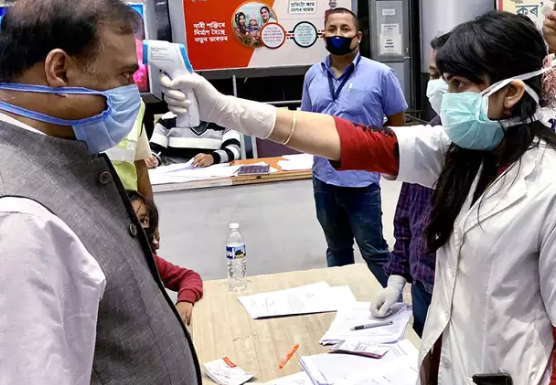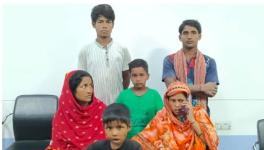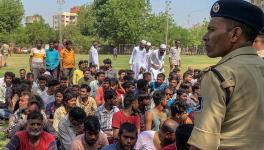Thousands of Indian Gulf Returnees May Pose Risks after Lockdown Ends

Representational Image. Image Courtesy: The Economic Times
Thousands of Indians working in Gulf Cooperation Council (GCC) countries are waiting for international borders to open up so that they could return home. Amid challenges on the economic front due to the COVID-19 pandemic, this is going to be one of the major headaches for India after the ensuing lockdown. As the COVID-19 crisis is expected to wipe out millions of jobs in the near future across continents prompting worldwide immigrations, India and its states barring Kerala are yet to announce how they will deal with the returnees, especially those from GCC countries.
Reports suggest that Kerala, Tamil Nadu, Punjab, Uttar Pradesh and Bihar will be at risk of contagion with the return of emigrants from Gulf countries given the spike in cases when people returned from Gulf countries in February and early March.
Migrant workers in the Gulf countries have been restricted from communicating to the media during the lockdown there. “We have been given strict instructions from our employers to not speak to the media,” said an employee from Telangana who works for a private company in the U.A.E. and wants to remain anonymous.
Advocacy groups including Human Rights Watch (HRW), Amnesty International and Migrant-Rights.org have been issuing warnings about the plight of migrant labourers stranded in labour camps in these countries, and are appealing for better policies for foreign workers.
“How can workers protect themselves when most camps do not have running water and no hand sanitisers? How can you do social distancing in a camp where thousands of men are living side by side? None of the usual advice works in a labour camp”, Vani Saraswathi, the Associate Editor of Migrants-Rights.org told The Guardian.
So far, Kerala has come out with a policy on receiving Indian expats. On Tuesday, state Health Minister K.K. Shailaja told the media: “They (returnees flying back to Kerala) will not be sent home to ensure the safety of their families. They will be taken to the quarantine facilities that will be arranged near the airport.”
On March 12, the Ministry of External affairs had stated that Indian Consulates in Gulf countries have set up helplines and are closely monitoring the situation there.
According to WHO, the number of COVID-19 positive cases is increasing on a daily basis. The total number of cases reported by Qatar, Bahrain, Saudi Arabia, Kuwait and the UAE are close to 10,000 while 67 deaths have been reported . There are strict lockdowns already in place across these countries for the virus containment.
Considering the huge number of Indian workers in Gulf countries and the projected job losses by international organisations, handling the returnees from gulf countries will be a crucial challenge for India.
The International Labour Organisation recently estimated that 195 million people are on the verge of losing jobs worldwide and about 5 million of those are in Arab nations. According to Ministry of External Affairs’ 2016 data, 8.5 million Indians are employed in six Gulf countries and various studies have earlier estimated that over 70% of them are involved in semi-skilled or low skilled work. Job losses among this strata will leave workers with no option but to return to India.
In fact, thousands of people have already returned from the Gulf to India during the initial stage of the spread of coronavirus.
“There are over 1.3 millian migrants from Telangana in the Gulf and around 40000 returned in March and are in quarantine. Many more want to return but it is highly likely that they will be infected. Workers there are forced to live with 10-20 people in a room and there is no way to follow social distancing norms,” said Swadesh Parkipandla, President of the Pravasi Mitra Labour Union to Firstpost.
Furthermore, while 26,000 people from the Gulf countries were supposed to reach Mumbai in the last two weeks of March, India stopped all International flights on March 22, and they had to stay back.
Get the latest reports & analysis with people's perspective on Protests, movements & deep analytical videos, discussions of the current affairs in your Telegram app. Subscribe to NewsClick's Telegram channel & get Real-Time updates on stories, as they get published on our website.
























